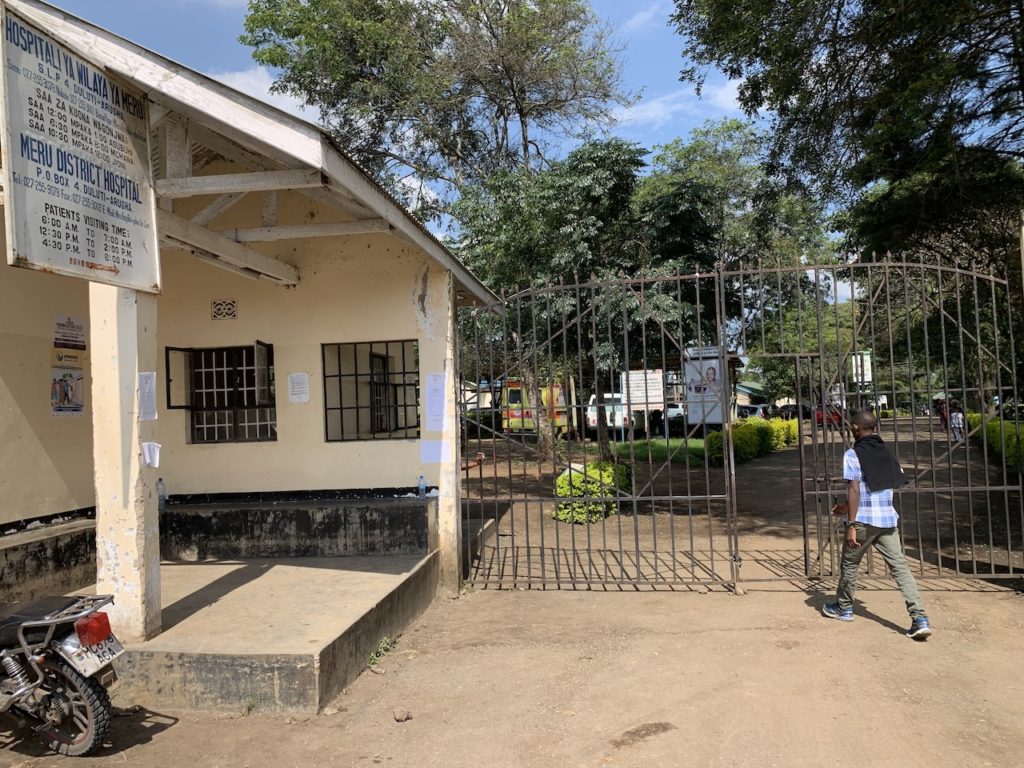
Karibu means “you’re welcome” in Swahili, the language shared by many countries of East Africa. As tourists in Tanzania, we were continuously greeted with this word, even before we said “thank you”. However, unlike the suggestive and perhaps slightly snarky “you’re welcome” one might say, for example, to a child who has forgotten to say ‘thank you’, the Tanzanian karibu is gracious and freely flowing. While, for me, the greeting inevitably evokes that same moment of childhood guilt, the sentiment behind it is generous, meant to relieve the recipient of obligation. It is almost the equivalent of “no need to say thank you”. When served food or helped with baggage, I usually found it difficult to get out my asante (thank you) before the karibu was bestowed.
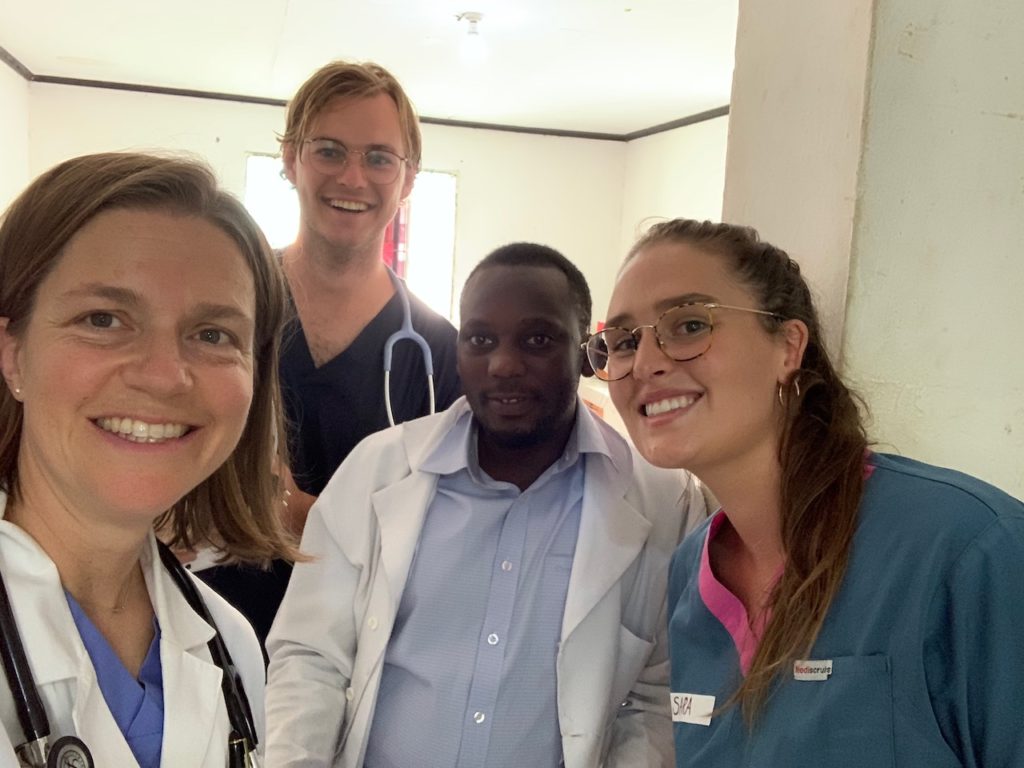
This word and its sentiment of no-strings-attached welcome exemplifies how my uncle Mark and I were treated from our first day at Tengeru Hospital, a severely under-resourced rural hospital where we volunteered during our time in Arusha, Tanzania. The doctors, nurses, and patients there did not have clear foreknowledge of our skills, credentials, or talents, but they welcomed us into their midst, sharing their cases, their tea, their bodies, their language, and their facilities.
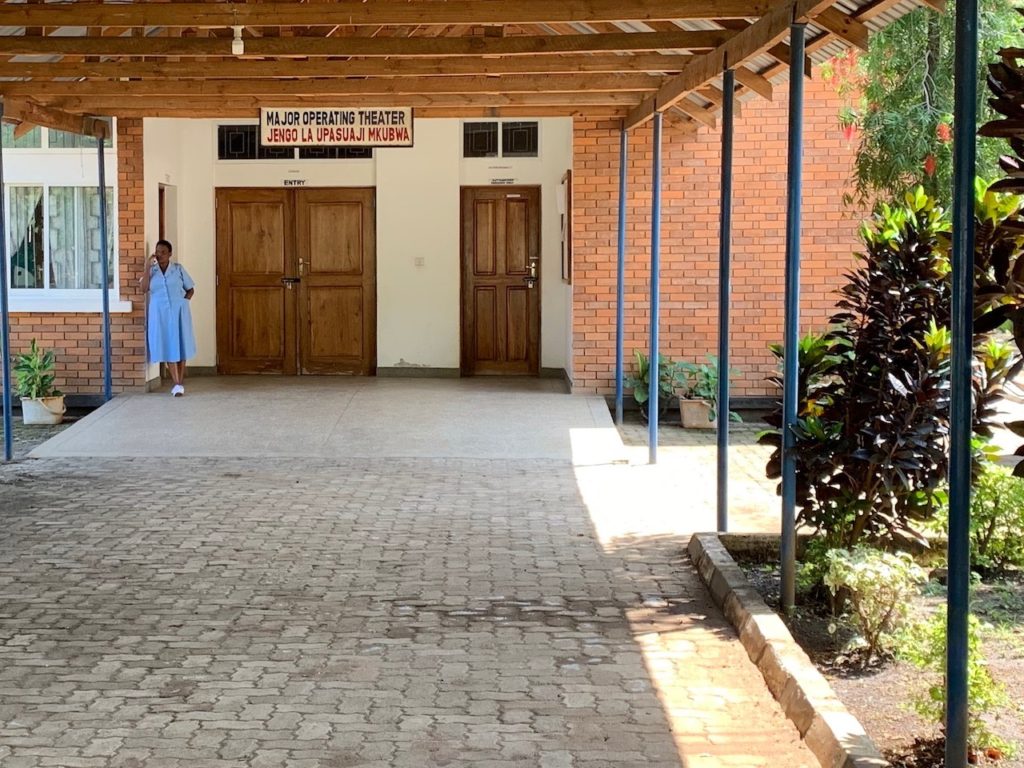
Although the karibu we received was certainly without obligation, I would like to send a big “thank you” (asante sana) to Tengeru and its staff and patients in the form of some much needed supplies, and I am extending an invitation to friends and followers of The Occasionally Magnificent Seven to join me. If you’ve enjoyed reading our little posts, please consider contributing as a thank you to us AND a way to do some good in this troubled world.
I have set up a GoFundMe site in order to raise money to purchase equipment that the staff and I identified as priorities during my time there. Check it out!
After listening to public broadcasting fundraisers for the last 4 decades of my life, I am excited to offer some thank you gifts for various levels of sponsorship:
All donors will have their names published in the thank you section of the blog.
$100 and up: Your picture and a profile story about you will be published in the thank you section of the blog.
$200-249: You will receive a postcard from a member of The Occasionally Magnificent Seven.
$250-499: Libbey and Rowena will dance to song of your choice and a video will be posted on the blog.
$500-749: Special Tanzanian gift shipped to you!
$750-999: A video of the entire family doing a silly activity of your choice will be posted to the blog.
$1000 and up: I will write a complete blog post on the topic of your choice.
A little goes a long way in Tanzania, and the hospital would benefit tremendously from some very basic items. COVID-19 hasn’t yet hit Tanzania hard (94 cases as of today although overall testing is obviously part of that), but if it does, hospitals like Tengeru will be on the front lines and ill-equipped to handle large numbers of patients with respiratory failure.
Here’s what I’m hoping to purchase:
Trauma shears
Cast splitter
Blood pressure monitors
Stethoscopes
Pulse oximeters
Glucometers
Portable electronic suction unit
Neonatal phototherapy unit
Goose-neck floor lamps for procedural lighting
Lightbox for x-ray viewing
Oxygen concentrator
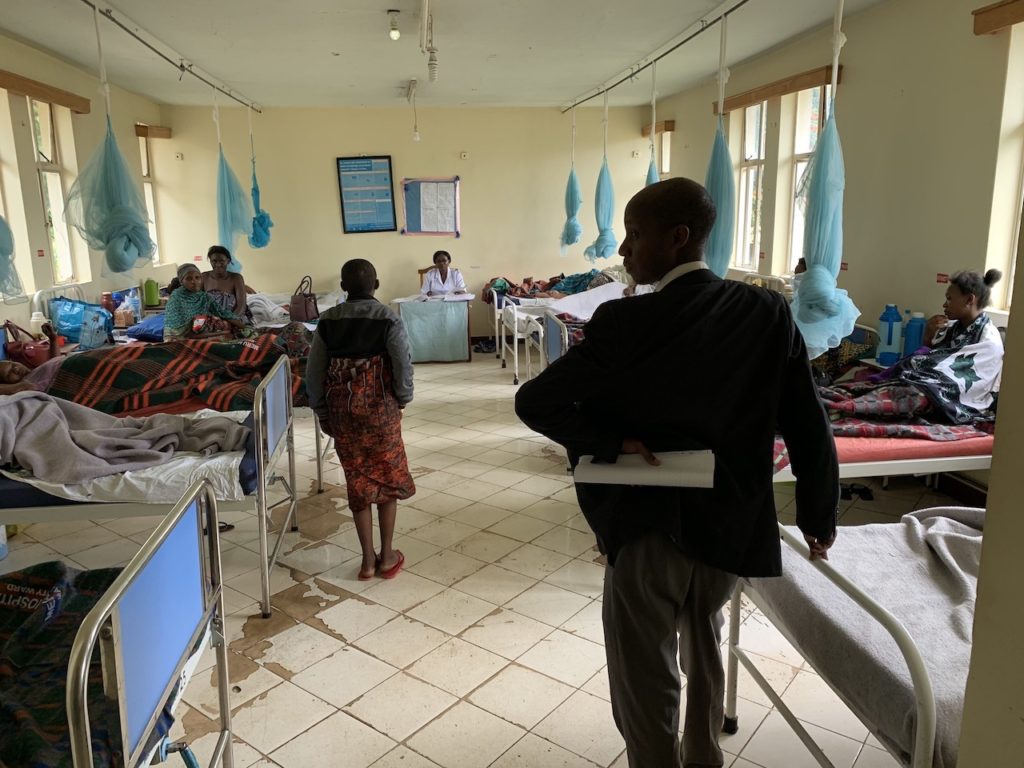
In case you’re on the fence about contributing, let me tell you a little bit more about the hospital. Meru District Hospital, or, as it is referred to informally, Tengeru, is a government hospital (as opposed to the more posh private facilities) and caters to an impoverished clientele. Most of the basic services one might expect are nominally available there, including inpatient care for adults and children, surgery, labor & delivery, routine pediatric health maintenance, HIV, diabetes, and tuberculosis clinics, a laboratory and radiology department, and more, but the facilities constantly suffer from a lack of supplies, staff, and needed specialists. The lab was not running any chemistries or cultures during our time there, citing a lack of the chemical reagents needed to perform these tests. The minor procedure area (called the “Minor Theatre”), which often feels like an assembly line for casts and splints on broken limbs, was constantly running out of appropriate padding, so the doctors and physical therapists had to substitute regular gauze instead (not very cushioning for a cast you’re going to have to keep on for 6-8 weeks). The few oxygen tanks and concentrators available were ferried about from ward to ward depending on which patient needed them most. Sometimes this meant that a 27-week preemie was using the same oxygen concentrator (and tubing!) that had just been used for a child with bronchiolitis or an elderly patient with pneumonia. A patient who needs intensive care must be transferred to another hospital, and a patient who arrives with a complicated case gets whatever basic care is available and then must seek out specialty care later if he can figure out where to go and how to pay for it.
Patients at Tengeru are correspondingly tough and resourceful. Although it is funded by the government, patients must pay for their care, in advance, and some opt out of even the most basic recommended treatment because it is too expensive. A typical x-ray costs $5-10 (US). In my experience, once the treatment plan adds up to about $30 or more, many families start to decline various items or delay them until they can find the money. I was caring for one woman, reportedly 112 years old, who had been admitted for several days with the presumptive diagnosis of pneumonia, but who hadn’t yet had a chest x-ray or been given any antibiotics because the family hadn’t paid for them. She was receiving oxygen, which I’m pretty sure is free (if one of the few oxygen concentrators is available for you). All treatment for children under 5 and anyone with HIV is also free.
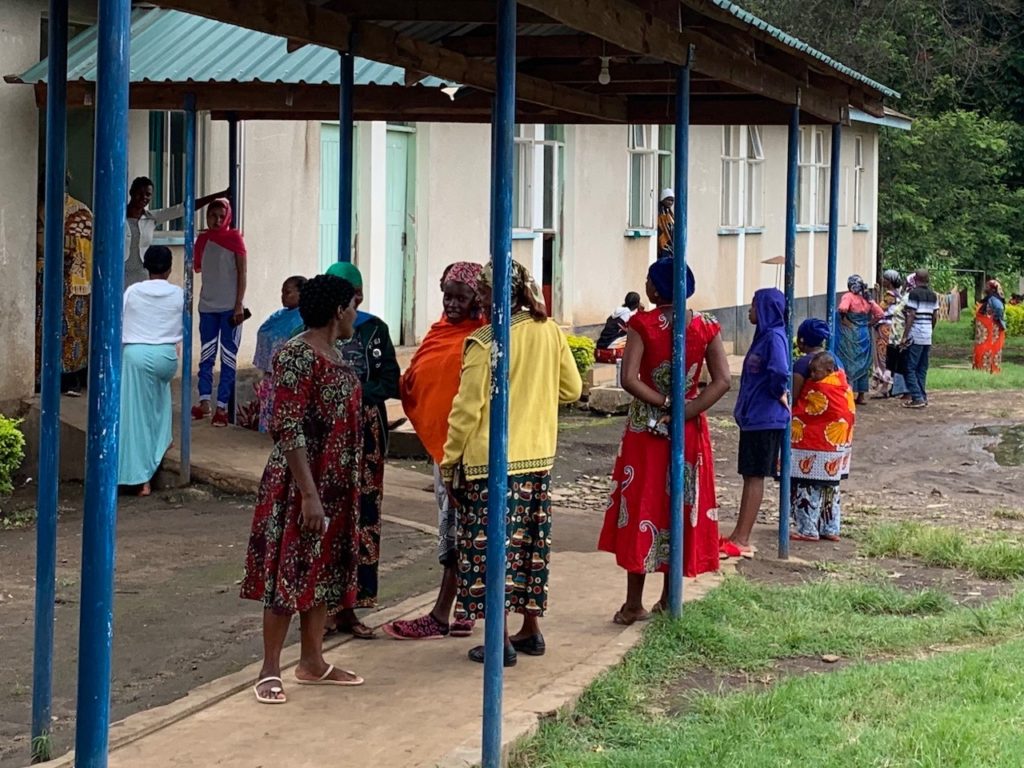
Having family support while you are in the hospital is critical. The hospital does not provide food, so the patients’ families bring them food, if they can afford the expense of travel and the food itself. There are inpatients who sometimes don’t get any food for a day or two if the family has been unable to visit. Patients are also responsible for going to the pharmacy and purchasing all of their medications (including intravenous and intramuscular ones) at the pharmacy and bringing them to the bedside for the nurses to administer. Families generally manage this for the admitted patients. Family members must also go to the billing department to pay in advance for x-rays and other tests before they are done. Patients are responsible for most of their bed linens as well. When women arrive in labor, they bring stacks of brightly-colored print textiles with them in small bags. The women, babies, and beds are all decked out in these pieces of fabric and it is quite a riot of color.
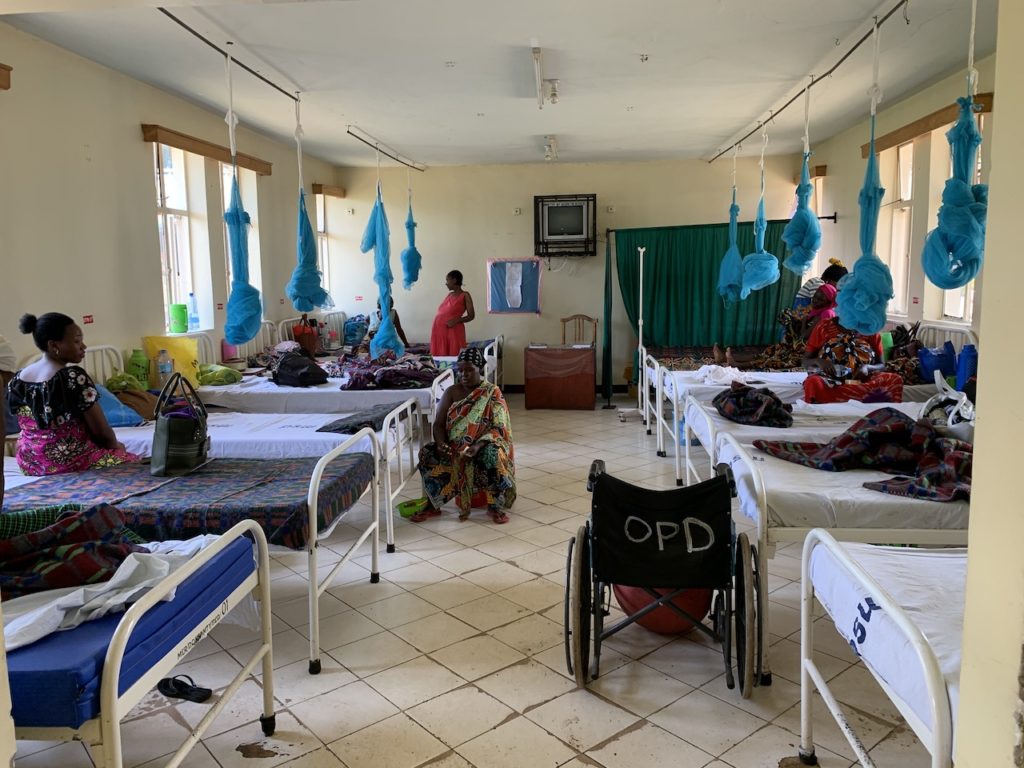
As follow-ups to this post, I’m going to share some of the dramatic cases that I encountered while working at Tengeru. Patient privacy concerns mean that I don’t have a lot of photographs, but I think the stories speak for themselves in these cases. Stay tuned, faithful blog followers!

Thank you for sharing this dear SIL. I am thrilled to be able to help. They must have been so grateful for your service. <3